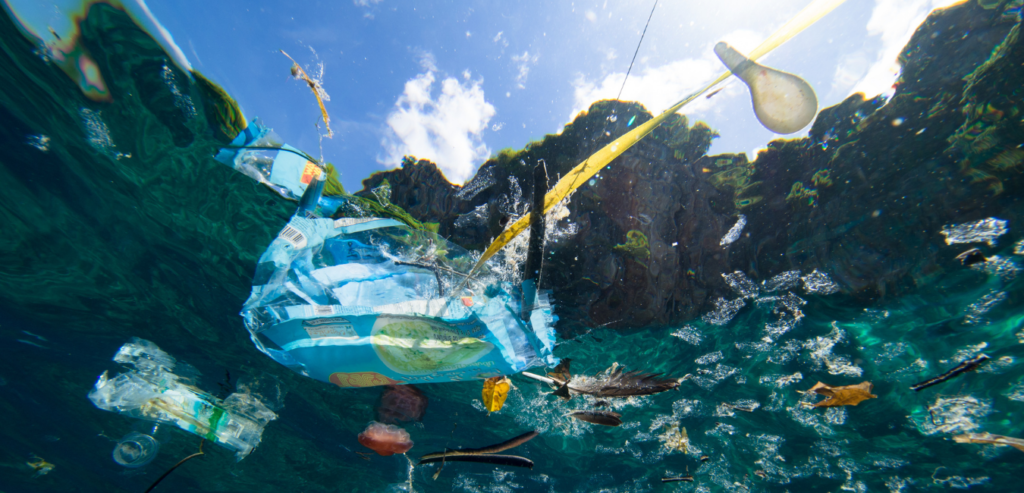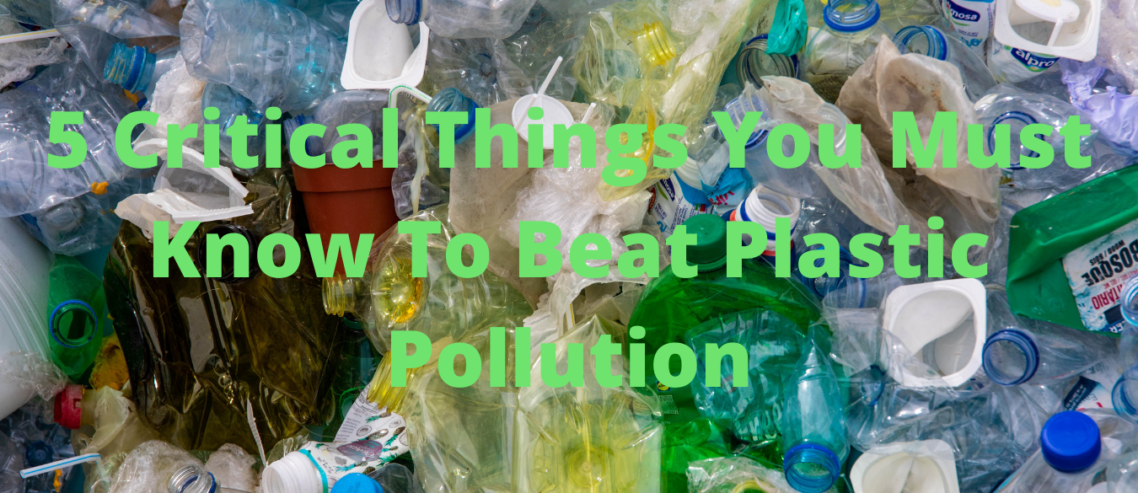5 Critical Things To Beat Plastic Pollution
Industries, communities, and governments around the world are being urged by the United Nations to join them in the fight against plastic. With “Beat Plastic Pollution” being a part of the UN’s environment program efforts are surely being made to curb plastic abuse.
The amount of plastic we throw away each year is enough to circle around the Earth four times. This much plastic waste only ends up in the oceans killing marine animals, seabirds and affecting our planet. No doubt plastic is one of the most convenient materials used in almost every other product but now it’s time to bring the change.
We must rethink our strategy to use plastic so that it doesn’t affect our planet. Below you can read about the critical things that you must understand to beat the plastic pollution.
Key things about Plastic pollution
1.Fossil Fuel Derived Plastic
The plastics are made using oil which is a non-renewable fossil fuel. It is estimated that around 8% to 10% of the world’s total oil production is used for producing plastic. This is a staggering number since we know that the burning of fossil fuels is harmful for our planet.
It is true that plastic production can’t be stopped from fossil fuels overnight, but we must rethink and find a way out. You must work on changing your lifestyle and start living an eco-friendly lifestyle. You should also adopt eco-friendly products into your daily life to help beat plastic pollution.
“Beat Plastic Pollution” is a greater initiative by the UN to curb such plastic abuse and stop being so wasteful. You can visit them here to know more.
2. Throwaway Culture
More than 9 billion tons of plastic have been produced since the 1950s from which almost 80% of plastic is now in landfills. This is what we call throwaway culture, a major source of plastic pollution that isn’t going anywhere.
The plastics in the ocean because of throwaway culture harms the environment in many ways.
- Plastics leaches harmful chemicals including BPA into the groundwater when on a landfill.
- Burning the plastic causes air pollution.
- It takes a lot of energy to recycle plastic and these aren’t infinitely recyclable.
- Marine animals can mistake plastic for food and die after consuming it.
Plastic material does not degrade easily but once the breakdown occurs, it requires different chemical processes to reshape those molecules back into plastic or other useful compounds.
3. Oceans – Earth’s Biggest Dumping Ground

Plastic is certainly a plague for our planet that circulates around the oceans. Each year around 8 million tons of plastic get leached into the oceans that disturbs marine life.
- Plastic debris is mistaken for food by many sea organisms/species.
- These creatures consume those plastic products.
- And later get choked or killed to death.
It is estimated that by 2050 there will be more plastic than fish in the oceans if the plastic abuse continues at a similar rate. There are five plastic gyres present in the oceans right now which makes it the largest dumping ground on the planet. Moreover, microplastic has also entered our food chain and is being consumed by humans.
4. Beat The Plastic Pollution
Spreading awareness against single-use plastic has proved wonders for the community. We are witnessing a continuous fight back against plastic as more and more businesses, municipalities, countries, and more are taking action against single-use plastic. There have been bans on harmful plastic straws, plastic bags, bottles, plastic cups, containers, and other single-use plastic. For instance,
- The UK imposed a tax on the use of plastic bags
- Australia imposed state-wide bans on single-use plastic items
“No Straws Attached,” “The Last Straw,” “Say NO to Plastic” and other popular campaigns are keenly spreading awareness around the world. These campaigns have made bigger impacts on society with their powerful message. Banning the single-plastic is one step certainly in the right direction.
5. Do Your Bit for the environment
There are numerous ways through which you can contribute and be a part of the solution. The UN states: “If you can’t reuse it, refuse it” and this is the best solution forward. Below we have highlighted a few ways that can prove to be effective:
- Say No to plastic straws at restaurants and adopt eco-friendly alternatives such as stainless steel straws
- Spread the word and pressurize the authorities to take action against plastic misuse
- Volunteer for beach cleanups and encourage friends & family to take an active part in it
- Use social media to spread the message against plastic pollution and ask for support
#BeatPlasticPollution was a challenge launched this year by the UN to give up on single-use plastic.
You can also start by switching over to eco-friendly alternatives to your daily use products. Check out this ever-evolving list of eco-friendly products to help you lead an eco-friendly lifestyle.


Comments
Comments are disabled for this post